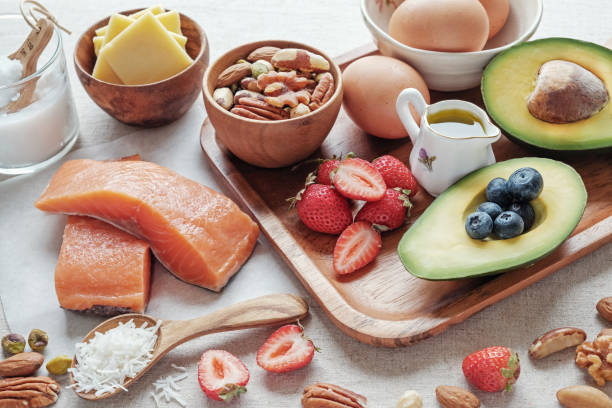Acid reflux, also known as gastroesophageal reflux disease (GERD) when chronic, occurs when stomach acid flows back into the esophagus, causing symptoms like heartburn, bloating, regurgitation, and chest discomfort. While medications can help, diet and lifestyle changes are some of the most effective long-term solutions.
A carefully planned acid reflux diet can reduce symptoms, heal the esophagus, and improve overall digestive health. This article explores the best foods to eat, foods to avoid, and tips for following a diet that keeps acid reflux under control.
Why an Acid Reflux Diet is Important:
- Protects the esophagus from acid damage.
- Reduces the frequency and severity of heartburn.
- Supports healthy digestion by reducing triggers.
- Promotes weight management, lowering pressure on the stomach.
- Provides long-term relief without over-dependence on medications.
Foods to Eat on an Acid Reflux Diet:
Choosing gentle, non-acidic, and low-fat foods can significantly improve symptoms.
Fruits (Low-Acid):
- Bananas
- Apples (sweet varieties)
- Pears
- Melons (cantaloupe, honeydew, watermelon)
Vegetables:
- Leafy greens (spinach, kale, lettuce)
- Broccoli, cauliflower, carrots, green beans
- Sweet potatoes and zucchini
Whole Grains:
- Brown rice, quinoa, oatmeal
- Whole-grain bread (avoid highly processed varieties)
Lean Proteins:*
- Skinless chicken and turkey
- Fish (grilled, baked, or steamed)
- Eggs (preferably egg whites)
- Plant proteins like lentils and chickpeas
Dairy Alternatives:
- Almond milk, oat milk, or lactose-free milk
- Low-fat yogurt (if tolerated)
Healthy Fats:
- Olive oil, avocado (small amounts), flaxseed
- Nuts (almonds, walnuts – in moderation)
Foods to Avoid on an Acid Reflux Diet:
Some foods weaken the lower esophageal sphincter (LES) or increase stomach acid, triggering reflux.
High-Acid Fruits:
- Oranges, lemons, grapefruit
- Pineapple, tomatoes, and tomato-based sauces
Fatty & Fried Foods:
- French fries, fried chicken, onion rings
- High-fat meats like bacon and sausage
Spicy Foods:
Chili peppers, hot sauces, and heavily spiced curries
Caffeinated & Carbonated Beverages:
- Coffee, tea, energy drinks
- Soda and sparkling water
Chocolate & Sweets:
- Chocolate (contains caffeine and fat)
- Peppermint and spearmint (relax the LES)
Alcohol:
Beer, wine, and spirits can all worsen reflux
Lifestyle Tips for Managing Acid Reflux:
- Eat smaller meals throughout the day instead of large portions.
- Avoid lying down immediately after eating; wait at least 2–3 hours.
- Elevate the head of your bed to prevent nighttime reflux.
- Maintain a healthy weight to reduce pressure on the stomach.
- Quit smoking, as it weakens the LES.
- Stay hydrated but avoid drinking large amounts of liquid with meals.
- Reduce stress with yoga, meditation, or deep breathing.
Sample Acid Reflux Diet Meal Plan:
Breakfast:
- Oatmeal with banana slices and almond milk
- Herbal tea (chamomile or ginger)
Lunch:
- Grilled chicken breast with quinoa and steamed broccoli
- Cucumber salad with olive oil dressing
Snack:
- Apple slices with almond butter
- Rice cakes
Dinner:
- Baked salmon with sweet potato mash
- Steamed green beans
- Water or herbal tea
Benefits of Following an Acid Reflux Diet
- Reduces heartburn and indigestion by avoiding common trigger foods.
- Protects the esophagus from acid-related damage.
- Improves energy levels by preventing discomfort after meals.
- Supports better digestion with nutrient-rich, gut-friendly foods.
- Enhances sleep quality by lowering nighttime reflux episodes.
- Promotes healthy weight management, reducing abdominal pressure.
- Decreases dependence on medications for symptom relief.
- Encourages mindful eating habits and portion control.
- Improves overall quality of life by minimizing daily discomfort.
- Lowers risk of long-term GERD complications, including Barrett’s esophagus.
Conclusion:
An acid reflux diet plays a crucial role in controlling GERD and heartburn. By focusing on whole, nutrient-dense foods while avoiding known triggers, you can reduce symptoms and support better digestive health. Combined with healthy lifestyle habits, a proper diet can provide lasting relief and improve your quality of life.
FAQs:
Q. Can I eat eggs on an acid reflux diet?
A. Yes, but stick to egg whites. Yolks are higher in fat and may trigger symptoms in some people.
Q. Is milk good for acid reflux?
A. Full-fat milk may worsen symptoms. Opt for low-fat or plant-based alternatives.
Q. Can I drink coffee if I have acid reflux?
A. Coffee is acidic and can trigger reflux. Switch to herbal teas like chamomile or ginger.
Q. Does losing weight help with acid reflux?
A. Yes, maintaining a healthy weight reduces pressure on the stomach and lowers reflux episodes.
Q. Is rice safe for acid reflux?
A. Yes, rice (especially brown rice) is gentle on the stomach and a great option.

